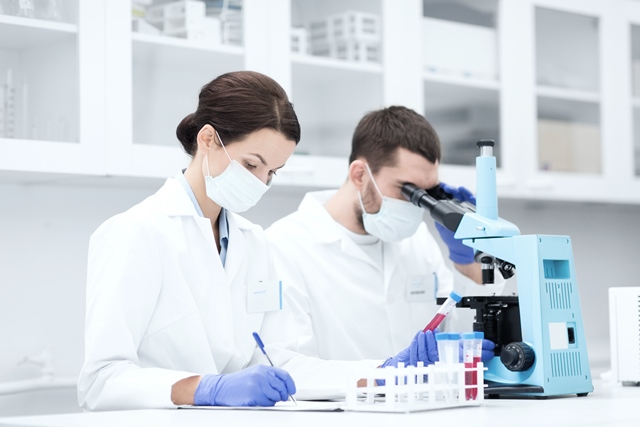GSK and Wave Life Sciences have announced a strategic collaboration to advance oligonucleotide therapeutics, including Wave’s preclinical RNA editing programme targeting alpha-1 antitrypsin deficiency (AATD), WVE-006.
The discovery collaboration has an initial four-year research term. It combines GSK’s unique insights from human genetics, as well as its global development and commercial capabilities, with Wave’s proprietary discovery and drug development platform, PRISM.
Oligonucleotides are short strands of DNA or RNA that can reduce, restore, or modulate RNA through several different mechanisms. The unique capability of oligonucleotides to address a wide range of genomic targets in multiple therapeutic areas is enabling new opportunities to treat a range of human diseases, including diseases where no medicines currently exist or that have historically been difficult to treat with small molecules or biologics.
Wave’s PRISM platform is said to be the only oligonucleotide platform offering three RNA-targeting modalities (editing, splicing, and silencing, including siRNA and antisense). Importantly, these modalities incorporate novel chemistry, including PN backbone chemistry and control of stereochemistry, to optimise the pharmacological properties of therapeutic oligonucleotides.
The collaboration includes two main components. The first is a discovery collaboration which enables GSK to advance up to eight programmes and Wave to advance up to three programmes, leveraging Wave’s PRISM platform and GSK’s expertise in genetics and genomics.
In addition to these programmes, GSK receives the exclusive global license for Wave’s preclinical programme for AATD called WVE-006, which uses Wave’s proprietary “AIMer” technology (A-to-I(G) RNA editing). AATD is an inherited genetic disease that affects both the lungs and liver with limited treatment options. Wave’s WVE-006 is a first-in-class RNA editing therapeutic that is designed to address both liver and lung manifestations of the disease.
Tony Wood, president and chief scientific officer, GSK, said: “Oligonucleotide therapeutics are becoming a mainstream modality, and this collaboration will enable us to use our leading position in human genetics and genomics to advance novel oligonucleotide therapies. Pairing GSK’s genetic expertise with the best-in-class PRISMTM platform enables us to accelerate drug discovery for newly-identified targets, by matching target to modality. The addition of WVE-006 complements more advanced, clinical-phase oligonucleotides in our pipeline, including bepirovirsen for chronic hepatitis B and GSK4532990 for non-alcoholic steatohepatitis (NASH).”
Bepirovirsen, an investigational antisense oligonucleotide for the potential treatment of chronic hepatitis B infection, is now entering Phase III trials, and GSK4532990, a siRNA oligonucleotide, is progressing to Phase II for NASH. WVE-006 brings a third oligonucleotide into GSK’s portfolio that has the potential to be a first-in-class AATD treatment for both lung and liver disease and is a well-understood genetic target, contributing to GSK’s pipeline that is now more than 70% genetically validated.
Paul Bolno, MD, MBA, president and CEO of Wave Life Sciences, said: “For the past decade, Wave has been building a unique oligonucleotide platform that combines novel chemistry with the means to optimally address disease biology through multiple therapeutic modalities. In 2022, we started to deliver on the promise of our platform with the first data showing translation in the clinic for our next-generation stereopure PN-chemistry containing candidates.
“Now with our GSK collaboration, we are excited to leverage their expertise in genetics to continue building a differentiated oligonucleotide pipeline, with a focus on our best-in-class RNA editing and upregulation capability. Additionally, GSK is the ideal partner for our WVE-006 programme, due to their longstanding history and global reach in respiratory diseases. The collaboration meaningfully extends our cash runway into 2025 and offers the potential for significant future milestones, providing new resources to deliver life-changing medicines to patients.”
The companies expect to pursue targets across multiple disease areas, given preclinical data indicating Wave oligonucleotides can distribute to various tissues and cells without complex delivery vehicles.
Under the terms of the agreement, Wave will receive an upfront payment of $170 million, which includes a cash payment of $120 million and a $50 million equity investment.
For the WVE-006 programme, Wave is eligible to receive up to $225 million in development and launch milestone payments and up to $300 million in sales-related milestone payments, as well as tiered sales royalties. Development and commercialisation responsibilities will transfer to GSK after Wave completes the first-in-patient study.
For each of GSK’s eight collaboration programmes, Wave will be eligible to receive up to $130-$175 million in development and launch milestones and $200 million in sales-related milestones, along with tiered sales royalties. Wave will lead all preclinical research for GSK and Wave programmes up to investigational new drug (IND) enabling studies. GSK collaboration programmes will transfer to GSK for IND-enabling studies, clinical development, and commercialisation. The collaboration includes an option to extend the research term for up to three additional years, expanding the number of programmes available to both parties.
The equity investment and collaboration agreement will complete at the same time and are conditional upon customary conditions including regulatory review by the appropriate regulatory agencies under the Hart-Scott-Rodino Act.


